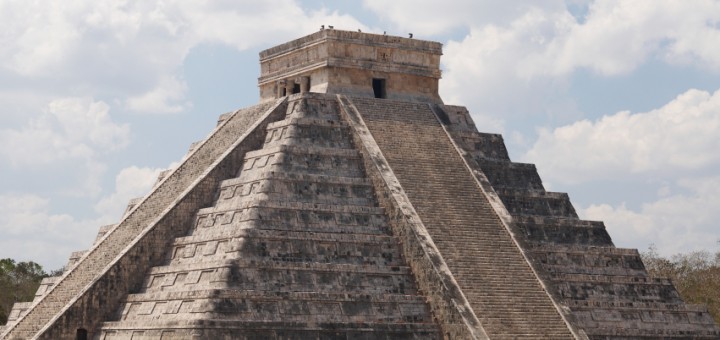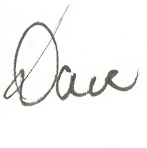There is the matter of the launch codes and the fact that they will soon be handed over to a man with the impulse control of a toddler. But since he doesn’t have access to the codes yet, the title of this piece is meant to be metaphorical, not literal.
“Nuclear winter”conjures up the image of multiple years of bleak, cold, barren desolation. Which is what a lot of people with whom I’ve had conversations since last Tuesday’s US presidential election are anticipating with Donald Trump in the White House for the next four years or longer. This assumes, of course, that he doesn’t bumble narcissistically into enough trouble to get himself impeached long before then — and there are some US pundits who are now prognosticating exactly that. But since Tuesday, punditry’s reputation is in the rhubarb. And besides, as much as it would delight me to see exactly that happen to him, I don’t believe it will.
“How did this happen?” people ask me of Trump’s takeover of American democracy by utterly legitimate means — winning the election that nobody to the left of Attila the Hun (other than documentarian Michael Moore) dared allowed themselves to believe, to ponder, to consider he might just win. The question implies that, because of my time in Alberta politics and my career in media, I must possess some magical insight into the intricacies of the American political process. Which I do not. Although I note that a troop of baboons is called a “congress” and a flock of owls is known as a “parliament”, which makes me feel vaguely superior about our political system. But I digress..
The American political process is a strange and complex mystery to most Canadians, but here’s what you (as an outside observer) really need to know about it: the US federal government consists of three branches — executive (the President), legislative (Congress), and judiciary (the Supreme Court of the United States) — and it was designed that way so that each branch checked and balanced the other two, maintaining accountability and preventing any one branch from going rogue and ruining the nation. That’s how it works on paper. We could devote the next four years to debating whether it works in practice, and indeed, many Americans have come to the conclusion that it hasn’t worked for years. But that’s a discussion for another time.
However, to answer how this happened, we need to look not at the political process but at the American people, American culture and American mythology. On that count, I think I can offer some insight, having spent both the Wonder Years and my adolescence living half a mile from the border.
There’s a very good reason why Canada is so much more middle-of-the-road than the United States: why they produce such brilliance, such innovators, such scoundrels and such villainy and we all seem to be more or less equitably adequate. It’s math. Numbers. There are 36 million of us, and 319 million of them. So it stands to reason that they will produce nine times the number of the very best of humanity, and nine times as many of the very worst, than we will.
But there’s another factor too. Well, many factors, actually, including some that I’m sure, as a Canadian, haven’t even crossed my mind. But this one is key: the notion of American exceptionalism.
American exceptionalism consists of three interrelated ideas: first, that the history of the United States is inherently different from other nations; second, that the US has a mission to transform the world; and third, that its history and its mission give the United States a superiority over every other nation on earth. It’s all based on a very noble idea that the combination of personal liberty and shared democratic ideals make America unique.
The problem today is not only the stupefying arrogance of the notion of exceptionalism, but also that American exceptionalism was a White American construct that they applied only to themselves.
By the way, I am not accusing all white Americans of being overtly racist, misogynistic, and/or homophobic etc etc…there are plenty of those around, as has been obvious both during the entire presidential campaign and since Election Night, but let’s not be too hard on white Americans. We all inherited that sense of smug superiority from our European ancestors that they carried with them globally during the Colonial Era with such devastating effect.
But the arrogance of this exceptionalism blinds a lot of white Americans to the notion that anyone else could possibly take exception. Whether it’s the nice neighbours who live in the apartment above them (that would be Canada), the French (remember “freedom fries”?), the Latin Americans who might not be tickled to be dictated to by a US-owned multinational banana grower, the Mexicans “who keep stealing our jobs”, or the African-Americans who take to the streets after yet another man gets shot by police for the crime of being black, white Americans are so often gobsmacked to discover there’s a problem.
And it’s not new. I saw this in 1967 during the Detroit Riots, and again in 1968 in the wake of the Martin Luther King assassination, when cars full of terrified white Detroiters were lined up from Canadian Customs in Sarnia, across the Blue Water Bridge and over thirty miles back I-94, trying to get out of Dodge. And these same people, many of whom, in the preceding decade, had put their houses in Detroit up for sale and moved to the suburbs as soon as the first black family moved onto their street, did not get that there might be any legitimate reason — anything in their own behaviour — to cause black Detroiters to rise up. To them, it had to be “Russian Communists coming in to our country and stirring these people up.”
So let’s fast forward. Today, it’s “the Muslims” instead of “the Communists”. And dontcha know that all lives matter? But the really big difference between today and fifty years ago is that the mythology of White American exceptionalism was a lot easier to sustain when all white Americans, regardless of education or connections, sat together at the table of prosperity, power, and privilege — and most non-white Americans did not.
Fifty years on, the United States is a far different place. Today, more and more non-whites, women, LGBTQ people, and others who are “not like us” are sitting at that table. In such a context, white Americans look a whole lot less exceptional, even to themselves. The mythology starts to look like a lie.
Mythology is the collection of stories a group of people tell one another, to shape, define and sustain a shared history, culture, and identity. It’s the glue that holds the tribe together (we all belong to tribes, even if white folk like to pretend differently.) There’s always a grain of truth — and sometimes a lot more than a grain — in mythology. But there’s always also a lot of stuff the group just made up along the way to make itself feel good. And when that part of the shared story starts to fall apart, that’s when things get dangerous.
My next rant will be about how Canada should respond to this.







Leave a Reply